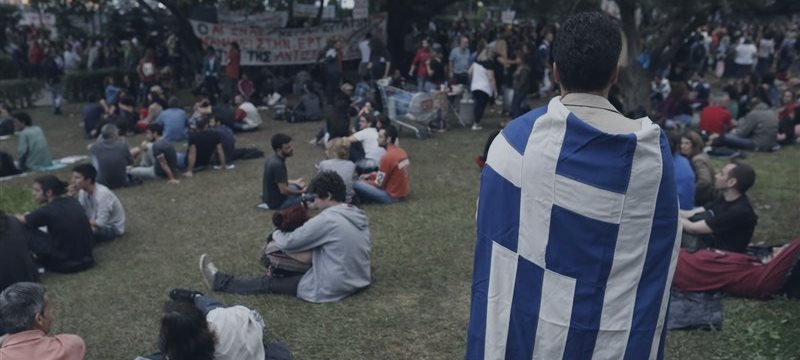The euro was hit on Thursday by the political turmoil in Greece as citizens protest against Greece’s third bailout. The country has until Monday to reach a compromise, and unlock €2bn in loans plus €10-bn to recapitalize its banking sector.
The shared currency was also hit by a speech from European Central Bank President Mario Draghi who has testified to the European Parliament. He hinted at a fresh stimulus in his speech.
EUR/USD hit a trough of 1.0703 before recovering to 1.0724.
EUR/GBP was last seen at 0.7060, down 0.02%.
"Don’t blame the fire damage on the fire brigade," Draghi said citing the Greek crisis.
Today workers in Greece are demonstrating against the tax rises and pension reforms agreed with its creditors this summer. According to media reports, public services have shut down across Greece today, in the first general strike since left-wing Syriza party won power in January. Members of PAME, the Communist-affiliated union, are now marching through Athens.
The protests come as the Greek government tries to reach agreement
with creditors to unlock the next tranche of aid from July’s bailout
deal. They are still at odds over how to implement laws covering mortgages in default and other bad debts.
Quite a paradox, today’s general strike is actually supported by the ruling party, Alexis Tsipras’s Syriza coalition. Yesterday they urged all workers, unemployed, pensioners and students to join the general strike on Thursday.
They called on citizens to "actively respond" to the pressure of creditors who continue "the dynamics of extreme, unpopular neoliberal policies." However, these policies were accepted by Tsipras under huge pressure this summer, when Greece finally caved into a third bailout deal.
Separately, testifying to the European Parliament, Mario Draghi warned that the eurozone faces clear "downside risks" from the global economy, and weakening inflation pressure too.
"Moreover, inflation dynamics have somewhat weakened, mainly due to lower oil prices and the delayed effects of the stronger euro exchange rate seen earlier in the year. In addition, price pressures – such as from producer prices – remain very subdued."
He added that the ECB will re-examine the policy accommodation at its December meeting.
Referring to the Greek turmoil, he said that it is wrong to blame the ECB for the austerity misery suffered by bailed-out eurozone members, as since 2010 at least three countries have successfully completed their programs.
Elsewhere, data showed that consumer price inflation in France rose last month. French National Institute for Statistics and Economic Studies said in a report that French CPI rose to a seasonally adjusted 0.1%, from -0.4% in the preceding month. Analysts had expected CPI to rise 0.1% last month.
Earlier in Germany, Federal Statistical Office Germany said that German CPI remained unchanged at a seasonally adjusted 0.0%, from 0.0% in the preceding month.



